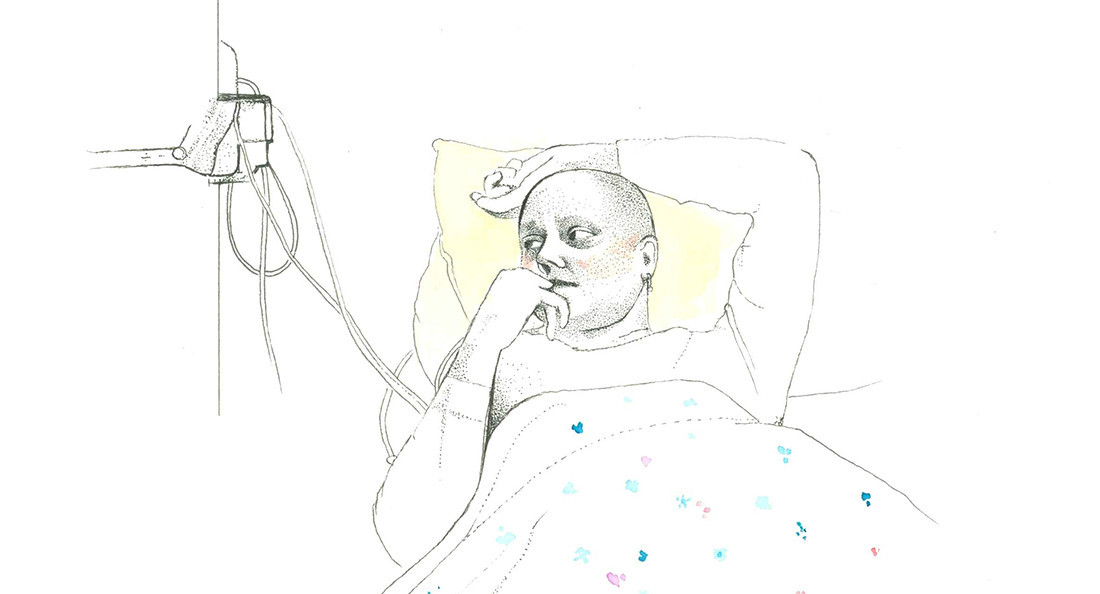Activists fight Concordia CancerCare closure
Patients and activists alike say healthcare cuts are damaging
In September, CancerCare Manitoba announced plans to close both the Seven Oaks General Hospital and Concordia Hospital outpatient cancer units and move patients to other hospitals. The closures began in December 2020. Activists hope to bring awareness to the closures and pressure the government to end future healthcare cuts.
When the closure of the outpatient Concordia CancerCare unit was announced, Andy Regier, founder of Protect Health Care in Northeast Winnipeg, and cancer survivor Claudette Wills started working with a team of activists to bring awareness to and push back against the closures.
“We’ve taken on this issue for patients who are battling cancer and who depend on the services at Concordia,” Regier says. Both Regier and Wills have spoken to many cancer patients who are upset about the closures.
“A number of elderly chemo patients at Concordia were talking to me ... and they were highly, highly anxious and stressed about the closure,” Wills says.
According to Regier, the patients “feel comfortable there, (because) there’s familiar faces there,” and many live close to the hospital.
Wills explained that “the nursing staff and the patients that have been treated there said it is a family, homey kind of atmosphere. And that’s in direct contrast to what it is in CancerCare on McDermot,” at the Health Sciences Centre.
In addition to the loss of the comfortable environment of Concordia CancerCare, switching to the other units presents further challenges for patients.
Wills describes the unit at the Health Sciences Centre, where she received treatment, as hard to navigate and says “it’s a business-like atmosphere in comparison (to Concordia) ... To not have that familiar surrounding, you know, I think that would be really disastrous for many of the ladies I’ve talked to.”
Transportation presents an additional hardship. “Cancer patients are “asking me very bewilderedly, how do they get to the Health Sciences Centre for CancerCare for the chemo?” Wills says. “They have no idea. They’re elderly, they no longer drive, they don’t have access to their own car. Friends would have to drive them, or family, and if that person stays with them, there’s parking fees.”
Protect Health Care in Northeast Winnipeg formed when the Concordia emergency room was closing and reassembled this past fall. “It’s a group of people who know how to fight back and take action,” Regier says.
Their main tool was a petition. Wills collected hundreds of signatures before COVID-19 restrictions forced them to switch to organizing exclusively online.
In addition to the grassroots team, they’re working with MLAs Matt Wiebe and Nello Altomare, who have been raising the issue in the legislature.
“A lot of people aren’t aware that this closure is happening, and so we’re using this (petition) as a way to engage people, to let them know what’s going on and give them at least some voice to fight back,” Regier says.
“Healthcare services in the community close to home are very important to people across Manitoba,” Regier says. “It’s not just the access to services, it’s the identity that comes with living in the area ... it creates a sense of belonging.”
Regier suggests Manitobans email and call their MLA, Premier Brian Pallister and the health minister to register opposition to the closure and healthcare cuts in general.
He also encourages talking to family members about the cuts. “Sharing your story about what the impacts of these cuts are is so important.”
Published in Volume 75, Number 13 of The Uniter (January 7, 2021)







